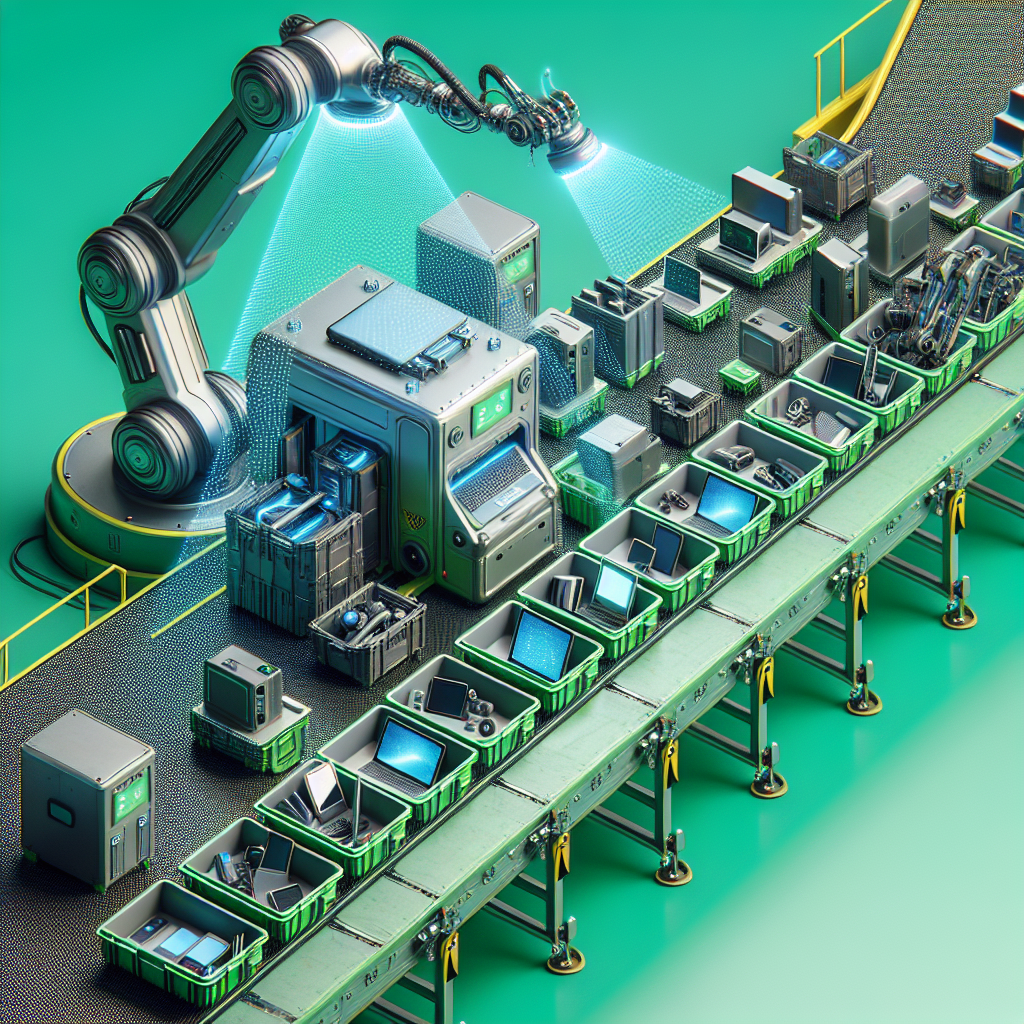Blog Ecobraz Eigre

Artificial intelligence applied to sorting electronics
Introduction to Artificial Intelligence in Electronics Sorting
The application of artificial intelligence (AI) in the electronics sorting process has transformed the efficiency of electronic waste management, meeting current standards and helping with environmental compliance. This procedure is fundamental for the separation and proper classification of electronic devices which, due to their composition, require specific care in disposal and recycling, as established by the national solid waste policy (Law no. 12.305/2010).
Legal and Regulatory Framework
The Law No. 12.305/2010 establishes the National Solid Waste Policy (PNRS), which sets out guidelines for the proper management of electronic waste. It establishes shared responsibility for the life cycle of these materials, including sorting and proper final disposal, respecting environmental standards. In addition, bodies such as the CETESB define technical procedures for the correct management of this waste.
Benefits of AI in Electronics Sorting
The use of artificial intelligence in sorting allows for the automatic and precise identification of electronic components, reducing human error and increasing the speed of the process. Advanced computer vision and machine learning algorithms make it possible to classify parts and materials, segregating those that have the highest recycling value and those that require specific disposal, such as special treatment for the safe disposal of digital storage devices.
Automated Sorting Process
AI-based systems use sensors and cameras to capture images and data from discarded electronic devices, carrying out analysis in real time. This technology makes it possible to separate recyclable items from those that need specialized processing, such as hard drives and media with sensitive data, whose secure sanitization is an essential requirement to avoid leaks of confidential information.
Contribution to Sustainability and Compliance
The automation of electronic sorting with AI supports compliance with environmental targets set by legislation, such as those stipulated in the National Solid Waste Management Information System (SINIR). In addition, it reduces operational risks and enhances the reuse and recycling of electronic components, in line with the demands of the technical and sustainability sectors.
Incorporation into Collection Processes
For institutions that collect electronic waste, integration with intelligent sorting systems enables greater control over the quality and speed of the service, optimizing scheduling for the responsible disposal of equipment. To organize the collection of electronic waste, we recommend scheduling through the portal https://ecobraz.org/pt_BR/eletronicos.
Final Technical Considerations
Investing in AI technologies for sorting electronics requires alignment with ABNT standards and environmental regulations. Responsible governance of these systems must guarantee data protection and the traceability of processed materials, in accordance with the provisions of current legislation. In this way, decision-makers in ESG, EHS, Information Technology, Legal and Purchasing have at their disposal an efficient technical tool for raising the standards of electronic waste management.

Deixe um comentário
O seu endereço de e-mail não será publicado. Campos obrigatórios são marcados com *